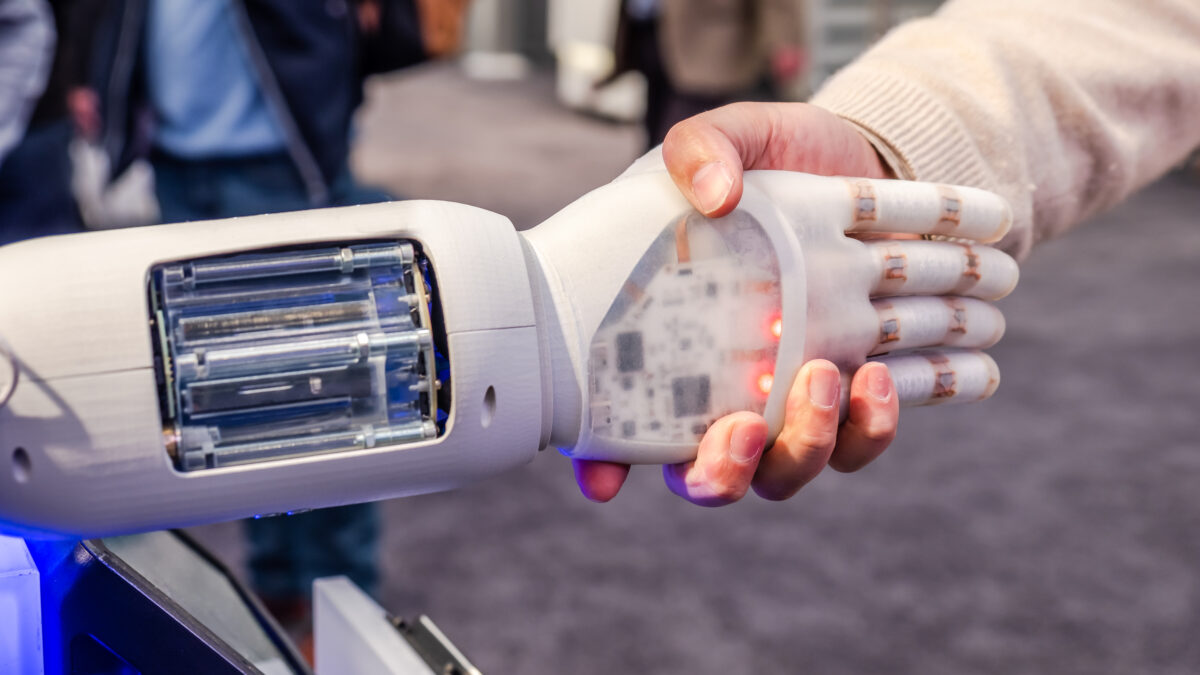The UK Government has announced £84m of funding for artificial intelligence and robotics research aimed at improving safety in extreme environments such as the North Sea, nuclear energy production and space, and for smart energy innovation. Heriot-Watt has been chosen as one of four UK hubs.
In her keynote speech to the Innovate UK Conference in Birmingham today (8th November), Climate Change and Industry Minister Claire Perry set out how British experts and innovators are leading the world in this new sector, receiving support from the Industrial Strategy Challenge Fund.
The government is working with business and academia in order to encourage investment in robotics and artificial intelligence – a priority area of the Industrial Strategy. Almost £45m will be used to set up four new research hubs based at Manchester, Birmingham, Surrey and Heriot-Watt universities
The centres of excellence, managed by the Engineering and Physical Sciences Research Council (EPSRC), will be responsible for developing robotic technology to enable safer working environments in space and deep mining and the hazardous and harsh environments of nuclear energy and off-shore wind.
Professor David Lane, of Heriot-Watt, said: “The international offshore energy industry faces many challenges, including near-permanent low oil prices, expensive decommissioning commitments of old infrastructure, particularly in the North Sea, and small margins on the traded commodity price per KWh of offshore renewable energy.
“Coupled to this, the offshore workforce is ageing as the new generation of qualified graduates seek less hazardous onshore opportunities. The goal is to develop shore-operated autonomous and semi-autonomous solutions for inspection, maintenance and decommissioning of offshore energy infrastructure using marine, terrestrial and airborne robotic systems.”
As well as receiving government investment, the four hubs will be supported by £52m of industry support from commercial and international partners, and the UK Space Agency is co-funding the Surrey University hub.
Professor Philip Nelson, chief executive of the Engineering and Physical Sciences Research Council, said: “These new robotics hubs will draw on the country’s research talent to nurture new developments in the field of robotics and provide the foundations on which innovative technologies can be built.
“The resulting outcomes from this research will allow us to explore environments that are too dangerous for humans to enter without risking injury or ill-health. The Industrial Strategy Challenge Fund is helping us achieve a joined up approach to research, discovery and innovation.”
Ruth McKernan, chief executive of Innovate UK, added: “These pioneering projects driven by the very best minds in UK research and industry exemplify the huge potential of what can be achieved through the Industrial Strategy Challenge Fund and the long-term benefits for the UK economy. These are just the first competitions in robotics and AI, there will be further opportunities for businesses in the coming months.”
Professor Duncan Wingham, chief executive of the Natural Environment Research Council, said: “The projects will develop ambitious new technologies that work in hazardous and extreme environments, maintaining the UK’s world-class status in marine robotics. Other industries, such as the water, aquaculture and industrial waste, are also likely to benefit from these technologies.”
Today’s announcements follow the publication of the industry-led Made Smarter review, which predicted Britain’s manufacturing sector could unlock more than £450bn over the next decade and create thousands of jobs if it successfully embraced digitisation, robotics and artificial intelligence.
The Minister also announced £16m for research into two new smart energy innovation competitions, which build on Government’s ambition to fund over £2.5bn in clean technology innovation.




